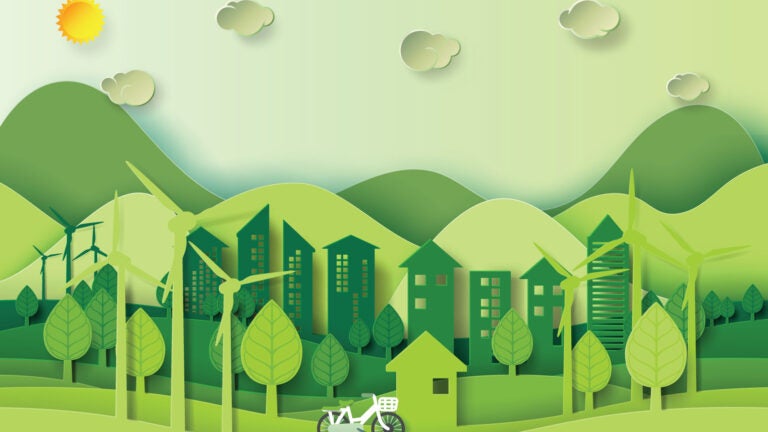
Want to use solar, but you rent an apartment? You can still go green
The first step is to go after the “low-hanging” fruit of carbon reduction: energy efficiency
Kelly T. Sanders lives the green and sustainable lifestyle. She takes short showers. Whenever possible, she avoids turning on the air conditioner. And she hasn’t owned a car in years.
It helps, of course, that Sanders and her husband live in on-campus housing at USC, where she is an assistant professor of environmental engineering: She doesn’t have to drive to work. The downside to the situation: She has no direct control over the environmental impact of the place in which she lives — the structure’s effects on the air, water and land.
This has become a topic of some interest lately, especially in the wake of California’s recent mandate requiring most new homes built after Jan. 1, 2020, be equipped with solar panels.
While that likely will cement the state’s position at the vanguard of progressive energy policies, it will also add as much as $10,000 to the cost of a new home, contributing to the already high cost of California’s residential housing market.
So what are poor renters to do if they want to cut their carbon footprint and live sustainably and affordably, but they can’t install solar panels?
The first step toward living green in an apartment, Sanders said, is to go after what she calls the “low-hanging” fruit of carbon reduction: energy efficiency. In addition to washing more quickly and reducing air conditioning, you can start adjusting your lifestyle to help pave the way for a solarized future.
We’re in a regimen right now where people don’t really think about when they use electricity.
Kelly Sanders
“We’re in a regimen right now where people don’t really think about when they use electricity,” said Sanders, an expert on electricity and water issues.
Living green in an apartment
That will have to change. Because solar energy is generated during daylight hours and can’t be efficiently stored, Sanders said, consumers in a more heavily solar-powered age will have to learn to shift and use more of it while the sun is shining. It’s the exact opposite of what happens now, when the greatest amount of energy is consumed at night. To a large extent, she believes, this problem will eventually be solved by so-called “smart” appliances that turn themselves off and on at energy-appropriate times. But until then, she said, “We need consumers to start thinking about when they’re using electricity. It’s really a cultural change.”
For renters, there are other options as well. Solar-powered chargers can be used to charge laptops and phones. The government offers other energy-saving tips for apartment dwellers, too. More important, though, is to urge landlords to weatherize windows and doors, she said. And even better: Push for public policies offering financial incentives to landlords who solarize.
“I care a lot about energy,” Sanders said, “but I don’t have any control over my windows or insulation. That’s really a function of the landlord, and if the renter is in charge of the utility bill, there’s no incentive for the landlord to be more efficient.”
Nonetheless, Sanders said, she’s doing her best at USC to spread the message. She and other faculty and students are encouraging the university to seek opportunities for energy efficiency.
To help encourage change, Sanders serves on several campus energy-related committees, and conversations are ongoing.
“I would like the opportunity to live the way I teach,” she said.



